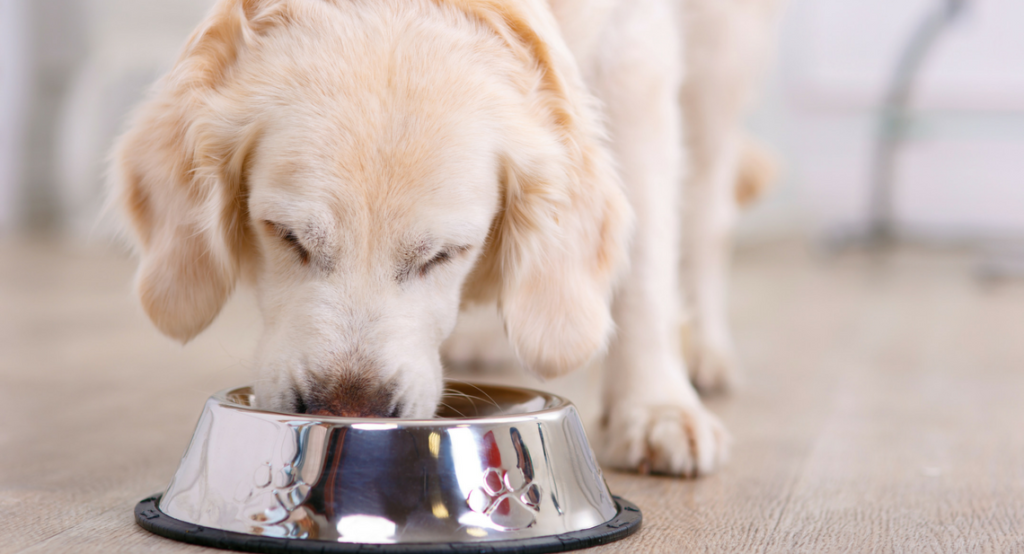What Makes EverPup So Delicious?

Dogs love the taste of EverPup — they seem to go crazy for the delicious flavor. When the jar runs out, folks feel bad (myself included), because dogs miss the taste. My Bjorn likes the taste of EverPup so much, he’ll lick the powder straight from the jar, as you can see in the photo above. You better believe that I feel guilty when a meal doesn’t include that taste just because I forgot to get another jar.
So what makes EverPup so delicious? Well, beef liver helps, of course. Few dogs can resist liver. It also turns out that few dogs can resist the flavor of Spirulina pacifica: the blue-green algae I include for its nutrition turns out to be a real palate-pleaser. Crab shell extracts and healthy spices retain their rich flavors, too. But I believe it goes much deeper than that.
As usual, the answer lies deep in Nature, deep in the body.
It turns out that animals don’t select food only for its flavor. They also select things to eat based on what it can do for them. In essence, they self-medicate.
We often see wild animals eat things that we don’t normally think of as food. Chimps, elephants and parrots have been seen eating things like clay and charcoal, for example. Animals seem to search out and eat specific parts of different plants known to have healing properties. They treat their own infections, wounds, upset stomachs, and even tumors this way. They’ll even help ease birthing with things they find in nature!
A biochemist and professor at Cornell University named Dr. Eloy Rodriguez has developed an entire new field of knowledge to study this phenomenon, called zoopharmacognosy. I can’t pronounce it, either, but its meaning breaks down like this:
“zoo” = “animal”
“pharmaco” = “drug”
“gnosy” = “knowing”
I wish I had been able to study this years ago, when I attended vet school at Cornell!
Wolves, one of modern dog’s closest relatives, self-medicate, too. For example, the Maned Wolf has a tendency to get kidney stones and kidney worms. To treat these conditions, they often eat lobeira, a small berry-like fruit.
In other words, animals in the wild seem to know what is best for them, and find and select their own medications.
So when I see Bjorn begging for EverPup in a way he’s never begged for anything else I think of zoopharmacognosy.
Our dogs are constantly exposed to invisible enemies in our modern world — more than ever before. These invisible enemies (which is what I call anything that we can’t see but can be harmful: carcinogens, pollutants, chemicals, bacteria, etc.) can disrupt their health in very serious ways, creating imbalances in cellular health, metabolism, hormones, and more.
Human doctors call these diseases the “diseases of civilization” because they aren’t as prevalent in less developed countries. This phrase isn’t used by many vets yet, but I think it will be.
It took me years to create EverPup, because I didn’t want to just throw in a bunch of “good” ingredients and call it a day. I really designed it to specifically help nourish, support and protect normal, vital health processes in the body. Each ingredient is there for a reason.
And yes, beef liver is there to make a dogs taste buds salivate … but I’m not sure that explains why they go so crazy for it. It could be that zoopharmacognosy is involved. The craving may be cellular. The cravings may come from the most basic animal instincts.
Inventing EverPup is one of the most fun things I’ve done, because once I figured out the must-have ingredients, I got to “think like a dog.”
For example, I didn’t want to give my healthy dog a pill every day. That just feels wrong, somehow — and most dogs instinctively don’t like pills, anyway. So my own instincts led me to the sprinkle-powder. I also knew it had to taste fantastic.
I remember feeling happy and proud as I watched Bjorn gobble down the final formula. His joy in eating matched mine in giving. And that just felt right.
So if you’re tempted to try EverPup with your own dog, I say follow your instincts. It’s what your dog would do.
Dr D
